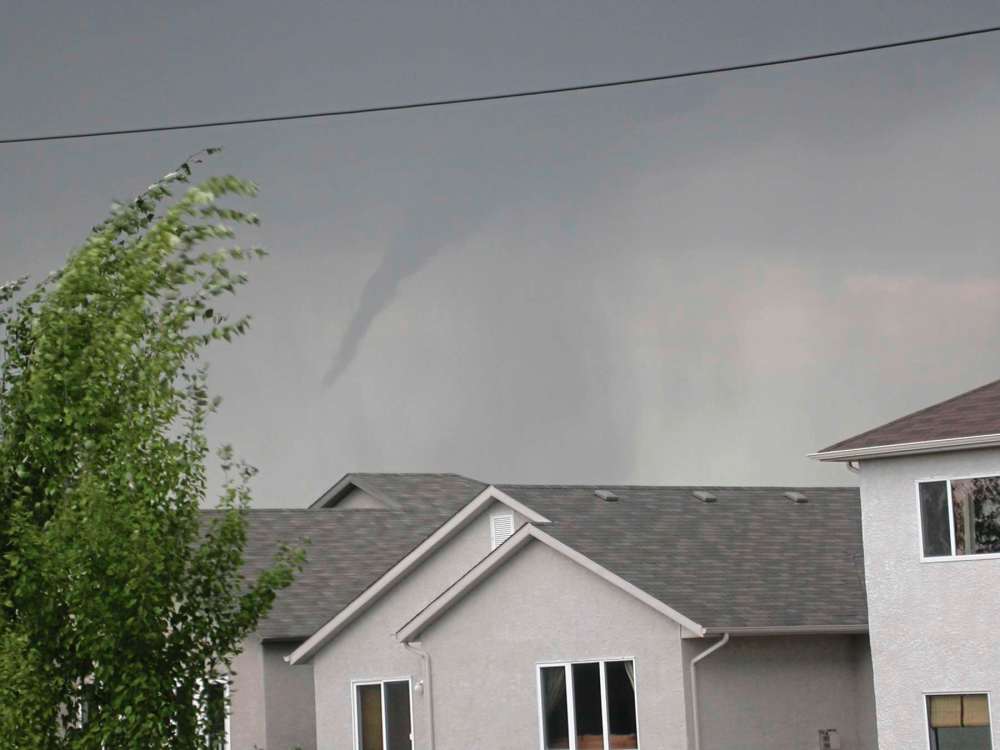It’s never too soon for a tornado plan
Advertisement
Hey there, time traveller!
This article was published 28/12/2021 (1440 days ago), so information in it may no longer be current.
As I watched the news about the devastating tornado in the United States, I silently thanked my grade school teachers and parents. They gave me knowledge and skills to protect myself from many dangers I would face in life.
Schools played a huge role in keeping every child safe. The school nurse gave us vaccines. Teachers taught us to stay safe on roads; to always walk on the shoulder facing traffic. To use hand signals when riding our bikes on the streets. They even taught us what to do in a tornado.
Visiting a small town after a tornado with my family gave me a healthy respect for this powerful force of nature. I learned to read the prairie sky for warnings and to trust my instincts when I feel danger in the air.
On Aug. 20, 2006, I saw the signs. It was a Sunday afternoon. I was on my deck facing north. The sky had a yellowish-brown cast. The hair on the back of my neck stood up. Clouds were moving fast from west to east. Then I saw it, a small funnel extending down from a dark cloud. I snapped a few pictures as I judged its distance and direction — ready to take cover if needed. My neighbours were unaware of the danger as they flipped burgers and enjoyed a backyard pool party.

The next day, newspapers reported that Winnipeg had narrowly missed a tornado. It skirted just north of my house — flipping over small planes at the St. Andrews airport. Canada’s first-ever F5 tornado touched down the next year just 30 kilometres west in Elie, Man.
If you don’t have one yet, take a few minutes to make your tornado plan. Where would you go?
Most homes do not have tornado shelters, so your basement is the next best thing. But what if you live or work in a high-rise? Get to the underground garage. No basement? Go to the lowest floor you can. Find a small, sturdy room with no outside walls or windows. Take cover under a staircase, in a closet, or in a windowless bathroom. Leave your mobile home. If you are caught outdoors, lie down in a low spot.
Wherever you take cover, protect your head. A helmet, mattress, pillow, or even your arms could save your life. You will have to act fast as you will not have much warning.
Michele Kading is a community correspondent for St. Vital.

Michele Kading
St. Vital community correspondent
Michele Kading is a community correspondent for St. Vital.
Our newsroom depends on a growing audience of readers to power our journalism. If you are not a paid reader, please consider becoming a subscriber.
Our newsroom depends on its audience of readers to power our journalism. Thank you for your support.



